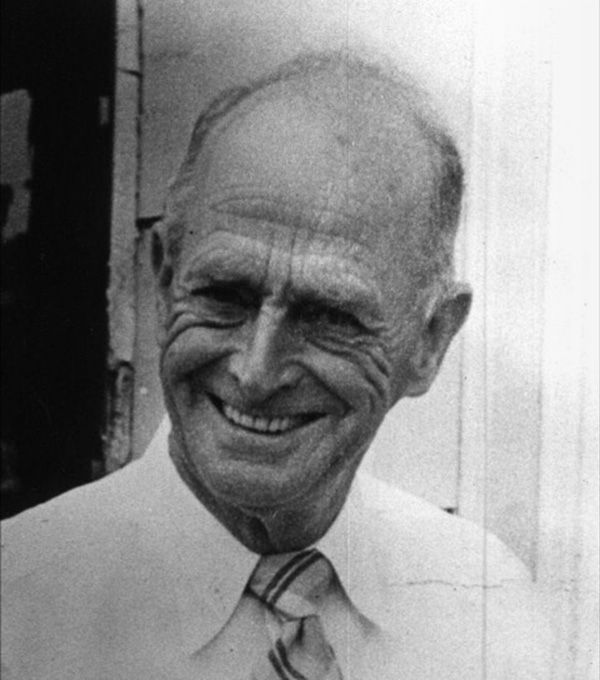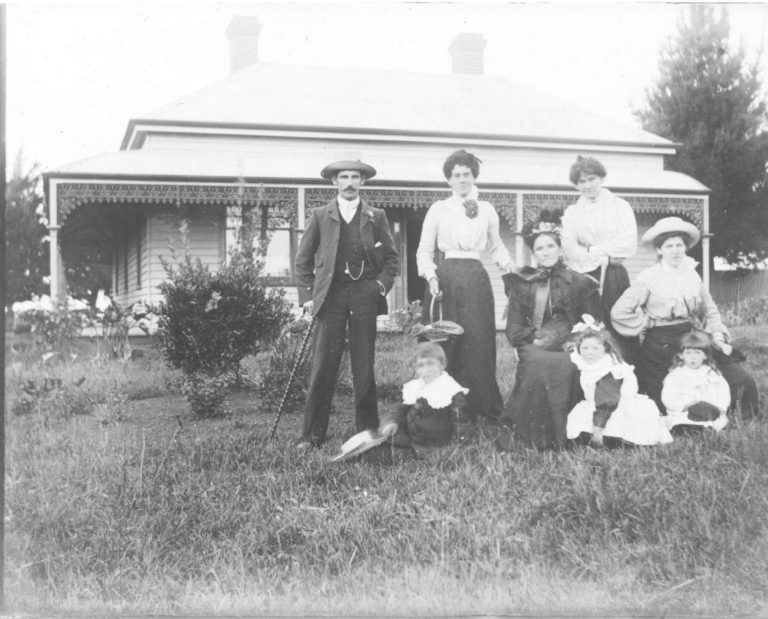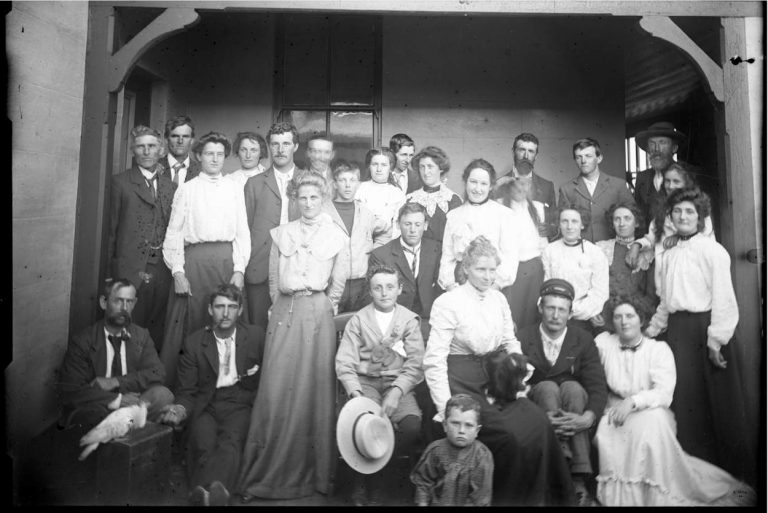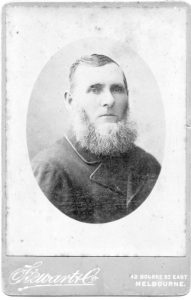Glan was born on 21 November 1893 in Tilba Tilba, NSW. His father, John Martyn, was a mining engineer from Cornwall who managed various mines in NSW and Victoria. John migrated via Wales to Pennsylvania, USA, in about 1870. On 13 March 1871 he married an American girl, Dorothy Crawford, in her parents’ home at Stockton County Luzerne. On 16 April 1877, they and three children sailed from New York aboard the three-masted migrant ship Annie H Smith for Sydney. After time in central Victoria, they moved to Tilba Tilba, where Glan was born. Glan was their seventh child, and was named for a Cornish friend with whom Glan had shared lodgings in Pennsylvania. The family later moved to Sydney. Following only nine lessons on the piano, Glan taught himself, becoming highly accomplished. At the age of 13, he was church organist at McNeil Memorial Presbyterian Church, Waverley, in recognition of which he received an illuminated manuscript, a copy of which is included in the archive.
He enlisted in the Australian army on 17 February 1917. He trained as a field gunner in Australia, then at Heytesbury, Salisbury Plains, where he contracted bronchitis. After treatment at the Sutton Veny hospital, he was sent from Southampton to Le Havre, France, to join his unit, the 7th Field Artillery Brigade of the Australian 3rd Division. From 4 May 1918 he was on active service as a field artilleryman until the armistice on 11 November 1918. As the Allied advance proceeded, his unit moved through the Somme Valley through towns such as Glisy, Hamel, Meharicourt, Peronne and Montbrehain until, on Armistice Day, his unit was at Sambre et Oise Canal sector. Because ships were relatively scarce, his unit was not repatriated to Australia until August 1919.

While in Hautmont, a group of enthusiasts, Glan included, put together a concert party, “The Courtiers”, which then moved around the district entertaining other units awaiting repatriation. Following his return home, Glan found work playing the piano for the silent movies in the western suburbs of Sydney. He met his wife, Anne Jane Walker Woods, in Sydney. With the onset of the Great Depression, they moved to Dubbo, where Glan continued to play the piano for the silent movies and drove a bus to supplement his income. Their first child, (Nancy) Shirley, was born there in 1928. The arrival of the talkies forced the family to move back to Sydney, where Anne’s parents employed the couple in their little grocery shop.
Their second child, John Glanville Martyn, was born on 1 March 1931, and their third child, Robert Crawford Martyn, was born on 22 July 1937. Glan and Anne ran their own small grocery business for ten years in Frederick Street, Fairfield, for about 10 years. Later Glan worked for the Producers’ Distributing Society and then spent 8 years with Winns of Auburn. They eventually settled at 83 Berwick Street, Guildford.
Glan was widely known for his musical talents. His whole life was immersed in music; for years, his orchestra was hugely popular in dance halls and ballrooms. When he wasn’t playing, he was teaching. Once, a young man arrived to ask to be taught the piano accordion. Glan asked him to come back a week later, by when he had taught himself and proceeded to teach the student. For many years he was church organist at St. Barnabas’ Church of England, Fairfield, where his funeral was held. He died on 27 December 1957.
The following link to Glan’s life leads to biographical notes, photographs (including three taken on the battlefields in France in 1918), war medals and a digitised recording of Glan at the piano, recorded a few months before his death.


